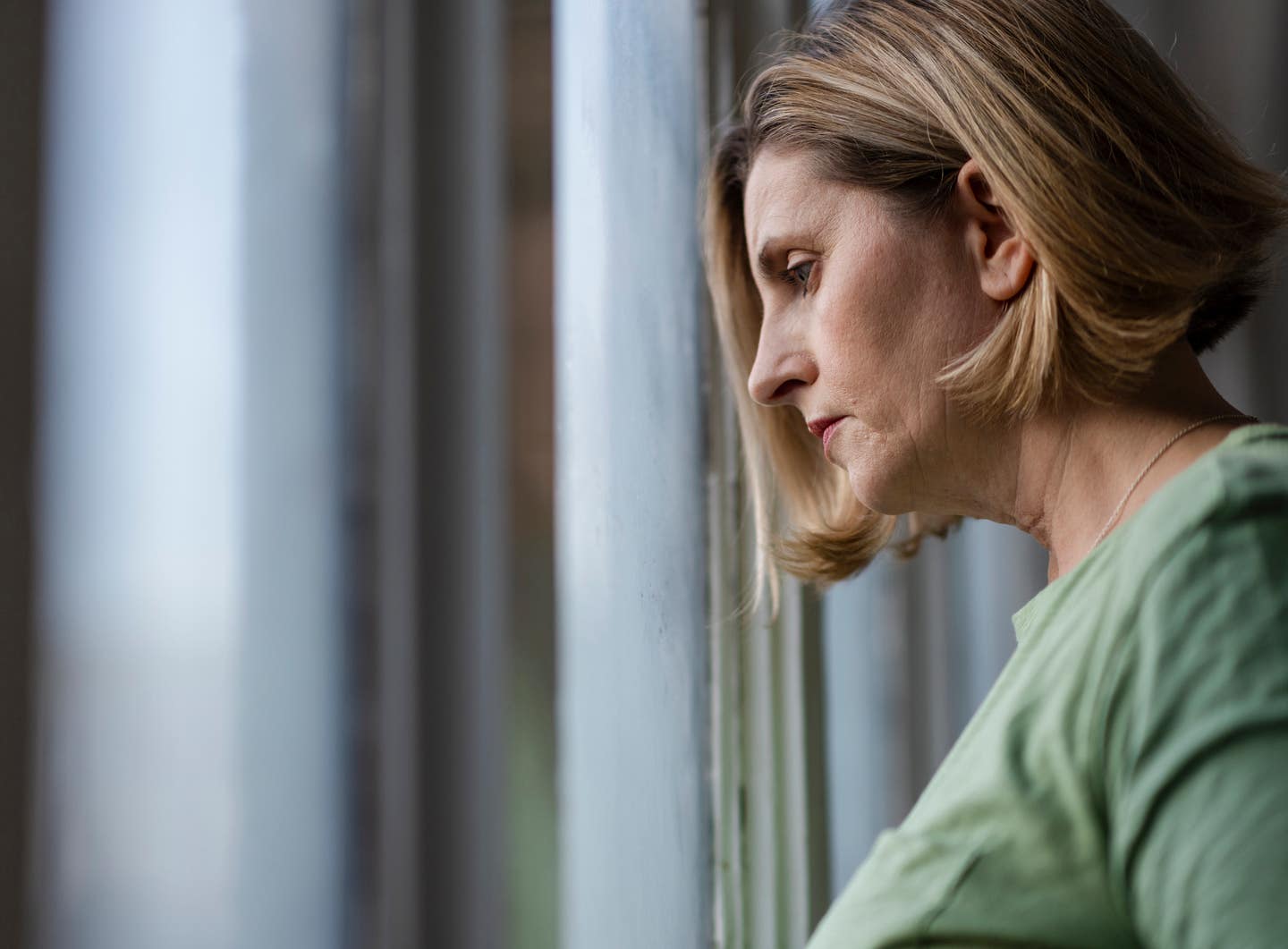Alarming levels of loneliness plague America’s middle-aged adults
Middle-aged adults in the U.S. are lonelier than seniors, challenging assumptions about age and loneliness in a major global study.

A sweeping international study finds that middle-aged Americans are lonelier than seniors, challenging global assumptions about age and isolation. (CREDIT: Getty Images)
Across many parts of the world, loneliness has become more than a feeling—it’s now a recognized public health concern. The aching sense of isolation or disconnection, especially when prolonged, can take a toll on your physical and mental well-being.
Recent studies have found loneliness linked to major health problems, including depression, heart disease, dementia, and even early death.
Over the last few years, governments in places like the United Kingdom and Japan have responded by creating high-level roles—“ministers of loneliness”—to tackle the growing crisis. These efforts were prompted by data showing that people who regularly feel lonely are more likely to die earlier and suffer more health problems over time.
But while these policies often focus on older adults, new international research suggests they may be missing another vulnerable group: middle-aged adults. In some countries, including the United States, people in their 40s, 50s, and early 60s are actually lonelier than those in their 70s and 80s.
Rethinking Loneliness as You Age
The latest study, published in the journal Aging and Mental Health, looks deeper into how loneliness shifts with age in different parts of the world. The research examined data from 64,324 adults between ages 50 and 90, across 29 countries in Europe, North America, and the Middle East.
Led by Dr. Robin Richardson, an assistant professor at Emory University’s Rollins School of Public Health, the study reveals that in most countries, loneliness grows with age. But that’s not the case everywhere. “There is a general perception that people get lonelier as they age, but the opposite is actually true in the U.S. where middle-aged people are lonelier than older generations,” Richardson explains.
Richardson and her collaborators from Columbia University, McGill University in Canada, and Universidad Mayor in Chile aimed to understand how age, health, and life situations affect loneliness. By using a detailed analytical method known as the concentration index (COIN), they were able to map loneliness trends across age groups in each country.
Related Stories
COIN was originally used to study income and health inequality, but here, the team applied it to age differences in loneliness. This allowed them to identify not just how loneliness is spread by age, but why it differs so much from one country to the next.
In most places, older adults do feel more isolated. Countries like Bulgaria and Latvia show steep increases in loneliness as people age. Adults in Greece and Cyprus reported the highest levels of loneliness overall among those aged 50 to 90. But in the U.S. and the Netherlands, the trend reverses—middle-aged adults are lonelier than those who are older.
What’s Driving Middle-Age Loneliness?
The study found that being unmarried, having poor health, depression, and not working were the biggest factors tied to loneliness across all countries. But how much each factor mattered changed depending on where someone lived.
In the U.S., not working was the most powerful contributor to loneliness among middle-aged people. That’s a stark contrast to other countries where unemployment affected older adults more. In places with stronger social safety nets, retirement or job loss in later life didn’t carry the same emotional weight.
Roughly 20% of the reasons behind loneliness couldn’t be explained by traditional factors like income, health, or marital status. That missing piece was concentrated in the middle-aged group, especially in countries like the U.S. This suggests that there’s something unique about being middle-aged that leads to loneliness—something that data alone can’t fully capture.
One likely explanation is the overwhelming amount of pressure many people in this age group face. Richardson and her team suggest that middle-aged adults are often stuck in a demanding spot: caring for children, managing careers, and looking after aging parents—all at the same time. These heavy demands leave little time for socializing, friendships, or self-care.
Add to this the high cost of healthcare, child care, and long-term elder care in the U.S., and it’s clear why middle-aged adults here may feel particularly strained. Unlike countries with robust welfare systems, the U.S. offers little in the way of affordable support for people trying to juggle it all. “Middle-aged adults represent a critical population that is being overlooked,” Richardson says.
Why the Findings Matter
Loneliness doesn’t just hurt emotionally—it hurts your health. It can reduce physical activity, increase stress, and weaken your immune system. Studies also show that lonely people are more likely to suffer from heart problems, memory loss, and depression.
That’s why researchers believe these new findings should guide future health policies. Dr. Esteban Calvo, a co-author and the Dean of Social Sciences and Arts at Universidad Mayor, believes current efforts are too narrow. “Our findings show that loneliness is not just a late-life issue,” Calvo says. “In fact, many middle-aged adults—often juggling work, caregiving, and isolation—are surprisingly vulnerable and need targeted interventions just as much as older adults.”
According to the researchers, any program designed to reduce loneliness needs to be flexible and culturally specific. “Globally, we must extend depression screenings to middle-aged groups, improve support for those not working or unmarried, and adapt these efforts to each country’s context—because a one-size-fits-all approach will not solve this worldwide problem,” Calvo adds.
Before launching a national campaign or support program, governments should first identify which age groups are at greatest risk of loneliness in their communities. What works in Greece might not work in Germany. What’s helpful in Chile might fall flat in Canada. Policies that aren’t rooted in local realities could miss the people who need help most.
Better Data, Better Solutions
The strength of this new study lies in its scope and depth. It used harmonized data, which means that all 29 countries used the same way of measuring loneliness, health, and social factors. This consistency made comparisons meaningful. Although the team acknowledged that some people may have underreported their feelings due to stigma or cultural reasons, they took steps to reduce these effects in their analysis.
Still, even with the best data, loneliness isn’t something that can be solved by numbers alone. Understanding how personal situations and social pressures intersect with age is key. And while much of the public conversation around loneliness has focused on older adults or teenagers, this research proves that middle age deserves just as much attention.
As the researchers point out, loneliness is not an automatic part of aging or an unavoidable outcome of modern life. It changes depending on where you live, what you’re going through, and how supported you feel. That means it can be changed.
When you feel lonely, the effects aren’t just emotional—they ripple through your body and mind. And now, with this new evidence, health experts and governments may have the insights they need to design smarter, more inclusive solutions.
Note: The article above provided above by The Brighter Side of News.
Like these kind of feel good stories? Get The Brighter Side of News' newsletter.
Rebecca Shavit
Science & Technology Journalist | Innovation Storyteller
Based in Los Angeles, Rebecca Shavit is a dedicated science and technology journalist who writes for The Brighter Side of News, an online publication committed to highlighting positive and transformative stories from around the world. With a passion for uncovering groundbreaking discoveries and innovations, she brings to light the scientific advancements shaping a better future. Her reporting spans a wide range of topics, from cutting-edge medical breakthroughs and artificial intelligence to green technology and space exploration. With a keen ability to translate complex concepts into engaging and accessible stories, she makes science and innovation relatable to a broad audience.



